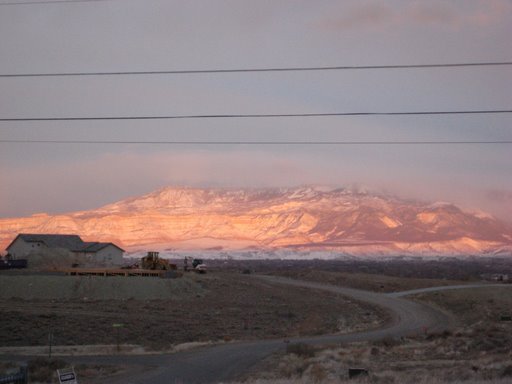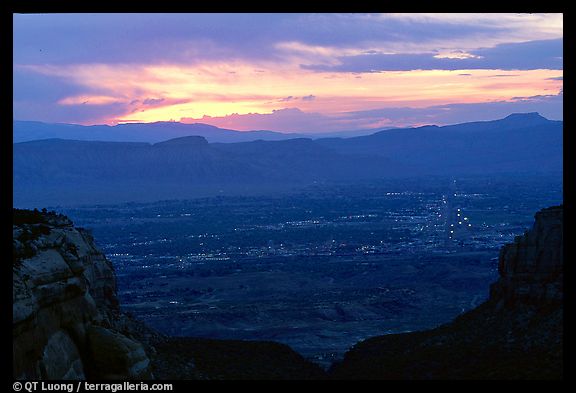Friday, September 19, 2014
Colorado’s Power Plants are Major Global Warming Polluters New Report: The Proposed EPA Clean Power Plan Is an Internationally Significant Step Forward on Climate
Denver, CO –As international leaders prepare for the United Nations Climate Summit next week in New York, a new study shows Colorado’s power plants dumped as much carbon pollution into the atmosphere as the entire country of New Zealand in 2012. Environmental advocates, local elected officials and clean energy business leaders pointed to the data to support proposed limits on carbon pollution from power plants.
“When power plants here in Colorado create as much pollution as an entire country, we know the climate’s in trouble,” said Travis Madsen, Senior Manager for Environment Colorado Research & Policy Center. “Colorado’s making progress in cleaning up our pollution, but we need to accelerate our investments in clean energy.”
The Environment Colorado Research & Policy Center report, America’s Dirtiest Power Plants, comes as more than a hundred thousand activists and world leaders converge in New York City seeking solutions to climate change, which scientists have clearly linked to extreme weather events such as the extreme downpour and flooding that struck the Front Range last September, displacing more than 100,000 people from their homes.
The report also comes as the Environmental Protection Agency takes public comments on proposed, first-ever limits on carbon pollution from power plants. If enacted, the limits would be the largest single step the United States or any country has ever taken to cut global warming emissions.
By comparing carbon emissions from U.S. power plants in 2012 to total carbon emissions of entire countries, the Environment Colorado analysis shows why limiting pollution from coal plants would make such a big impact. Key findings include:
If the United States’ fleet of coal- and gas-burning power plants were a country, it would be the 3rd-largest carbon polluter, behind the entire U.S. and China.
The Craig Station in Craig is Colorado’s largest global warming polluter, followed by the Comanche plant in Pueblo. These power plants are the 52nd and 54th most-polluting plants in the country.
Colorado ranks 19th in the nation for total carbon pollution from power plants.
Altogether, the Environmental Protection Agency’s proposed Clean Power Plan would reduce as much carbon pollution in 2030 as the entire country of Canada, the world’s 8th-largest polluter, emits today.
The Clean Power Plan would also spur investments in clean energy like wind and solar power, for which there is vast potential across the country and in Colorado.
“Colorado has taken important steps to cut its carbon pollution and invest in clean energy, including measures to strengthen the renewable energy standard, boosting geothermal projects across the state, and incentivizing drivers and companies to switch to electric and alternative fuel vehicles,” said State Representative Mike Foote. “This is a good start, but we all know more must be done to prevent the worst impacts of climate change.”
“Solar energy reduces carbon pollution – nationally it will help us avoid 13.8 million metric tons of CO2 this year,” said Rebecca Cantwell, Executive Director of the Colorado Solar Energy Industries Association. “And the Clean Power Plan will help create jobs and economic development with more solar energy. This report shows how important it is to get started right away.”
Americans have submitted more than 6 million comments to EPA supporting limits on carbon pollution from power plants; and more than a thousand people testified in support of the Clean Power Plan at hearings held across the country this summer, including a hearing in Denver in August. Local elected officials, small businesses owners and dozens of members of Congress have all voiced support for limits on carbon pollution. In Denver, supportive testimony outnumbered those opposed by five to one and more than 300 people attended supportive rallies.
“The Clean Power Plan gives Colorado a new opportunity to take charge of our energy future,” said Madsen. “Senator Udall has supported climate action and now it’s especially important that he continue to stand up to polluters and back EPA’s plan.”
Wednesday, September 10, 2014
Community solar' power grows in Colorado
The amount of electricity generated by "community solar" power systems has grown rapidly in the last few years in Colorado — and may be poised for even bigger growth.
"Community solar" is the name given to commercial-sized solar power systems in which individuals or businesses can buy or lease individual solar power panels — and get credit off their monthly bill for the renewable power generated by the systems. The systems generally range in capacity between 500 kilowatts and 2 megawatts.
The systems allow homeowners and business people who want solar power but can't put a system on their own rooftops because they rent the home, live in an apartment complex, or the roof is too shaded or faces the wrong direction. Solar gardens allow those customers to buy into a larger solar array and get credit for the solar power that's generated.
The first system came online in Colorado in 2009, when United Power, a Brighton-based rural electric cooperative serving more than 67,000 customers in areas of six counties north of Denver, was the first utility to create a solar garden with 48 solar power panels. The coop installed another 48 panels in August 2010.
Saturday, September 6, 2014
76% Of Coloradans Support Rooftop Solar, New Poll Finds
A telephone poll, carried out between August 21-24, found that 76% of Coloradans support net metering. 73% were opposed to the state’s largest utility, XCEL Energy, cutting the amount of credit it provides for customers who feed electricity into the grid. Yet according to Gabriel Romero, a media relations specialist from XCEL Energy, “The only thing regarding rooftop solar that’s on the table right now is a discussion about how to classify net metering.”
Keating Research and Public Opinion Strategies contacted 500 registered voters from all across Colorado. According to information in the form, respondents were from all political persuasions and income levels.
“This poll demonstrates increased public understanding of and support for solar net metering and a willingness to defend the tremendous benefits it has already delivered to Colorado,” said Walker Wright, spokesperson for The Alliance for Solar Choice (TASC) and Director of Government Affairs at Sunrun. “Coloradans want the choice for self-generated solar power, which contributes to the grid’s improvement while creating jobs in a growing industry.”
Subscribe to:
Posts (Atom)




